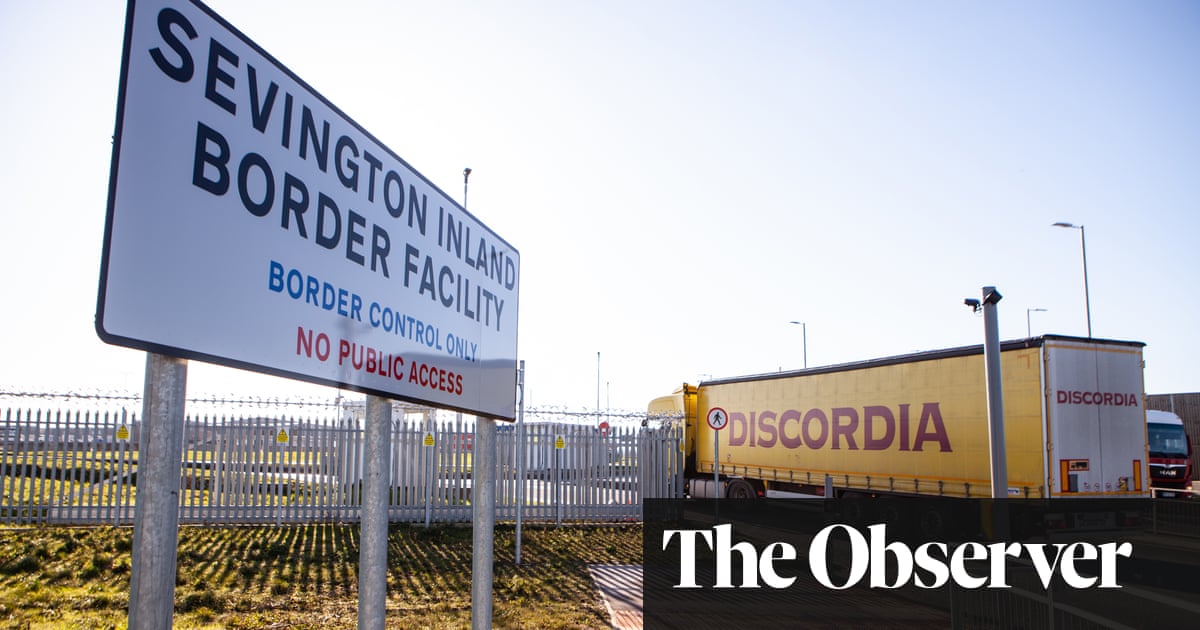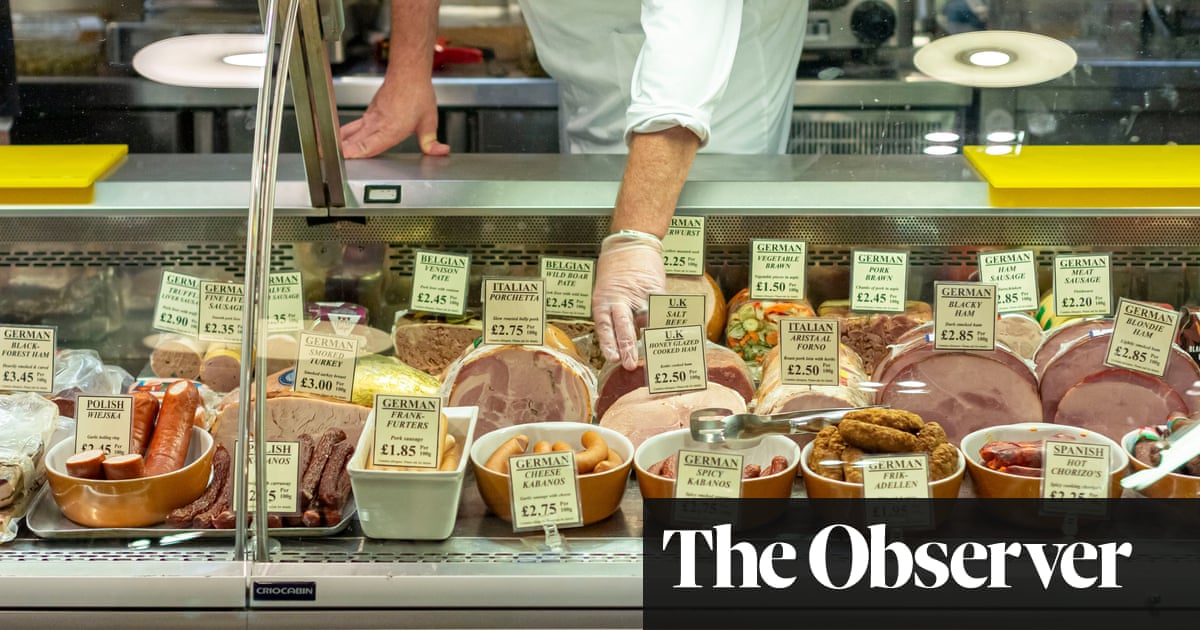
Nearly a third of British companies that import goods from the EU are “not at all prepared” for full post-Brexit customs checks, according to a survey of business leaders, sparking fears of increased congestion at ports and worsening supply chain disruption.
From 1 January 2022, companies that import goods will no longer be able to take advantage of a temporary six-month grace period allowing them to delay making customs declarations to HMRC and paying any tariffs due. They will from that date have to do so immediately.
Three in 10 of the leaders of firms that import from the EU polled by the Institute of Directors (IoD) said they were not at all prepared for the change, with 37% of small businesses and nearly a quarter of large ones saying they were not ready.
Kitty Ussher, chief economist at the IoD, said: “In just three weeks’ time, significant changes to our customs arrangements are going to be introduced, for which a large portion of businesses are either unprepared or simply unaware.
“This will exacerbate existing supply chain problems, leading to further congestion at ports, as well as extra costs from accidental non-compliance for many businesses. Government needs to ramp up an awareness and advertising campaign around these changes, simplifying the guidance, so that all importing businesses feel confident they know how to keep supplies flowing into the new year.”
Amanda Barnes, chief executive of media and events business Faversham House, said the upcoming changes were already causing problems. “Our issue with import controls is more from the perspective of how it is affecting our overseas and UK exhibitors who are trying to bring pieces of equipment and machinery into the UK to exhibit at our shows,” she said.
“There is loads of confusion out there and the costs of temporarily importing goods to show at exhibitions has become so prohibitive that some of our exhibitors are downsizing their stands or trying to cancel.
“The paperwork too is putting them off. I think it will be a real barrier to trade in the short term at least.”
The IoD surveyed 580 of its members and after removing those firms that said the EU import rule changes were “not applicable” to them, the results were based on the responses of the remaining 250 business leaders. Members were also asked what they would most like to see improved about the business environment they face.
The UK’s new trading relationship with the EU was the number one issue, with 16% of votes, with skills shortages second at 15% and the UK’s economic situation third with 12%.
A government spokesperson said: “Overall trader readiness for the introduction of import controls is strong. The government is also on track to deliver new systems, infrastructure and resourcing needed for these controls.
“We have been running a targeted campaign across print, radio and online to signpost businesses to the relevant information – and officials across government are leading a series of sector-based webinars to help traders and hauliers get ready.
“Recognising that the global pandemic has affected supply chains in the UK and across Europe, we announced earlier this year that we will be introducing import controls in phases throughout 2022 in order to give businesses more time to prepare.”












